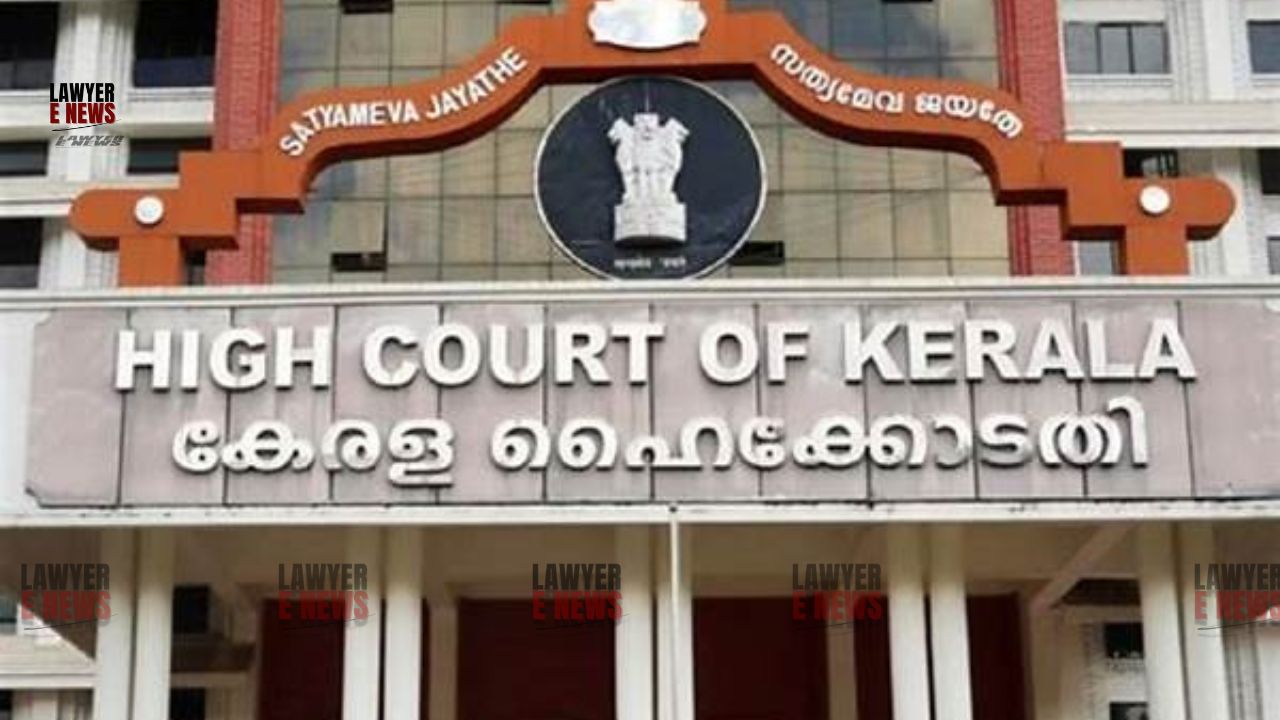-
by Admin
15 February 2026 5:35 AM



Civil Disputes Cannot Be Criminalized: Courts Must Ensure Proper Use of Judicial Resources: Kerala High Court Kerala High Court in Vinod & Another v. State of Kerala & Another quashed criminal proceedings against Vinod and Reshmi, accused of cheating under Section 420 read with Section 34 of the Indian Penal Code (IPC). The Court ruled that the case arose from a contractual dispute and did not warrant criminal prosecution under Section 420 IPC.
The petitioners, Vinod and Reshmi, had entered into a contractual agreement with the second respondent, Suresh, regarding a property transaction in 2016. Disputes arose between the parties over financial obligations and contract performance, following which Suresh filed a police complaint alleging that the petitioners had committed cheating. Consequently, an FIR was registered under Sections 420 and 34 of the IPC. The petitioners sought to quash these criminal proceedings, claiming that the dispute was purely civil and involved no criminal intent.
The Court observed that the core issue was whether the dispute between the parties was civil in nature or amounted to cheating under Section 420 IPC. Justice P.V. Kunhikrishnan emphasized that the dispute arose from a contractual relationship, with no evidence of dishonest inducement or fraudulent intent, which is necessary for a charge under Section 420. He reiterated that civil disputes over contracts should not be criminalized unless there is clear evidence of fraud or misrepresentation at the inception of the contract.
The Court highlighted a broader issue concerning the judicial system, noting a tendency in some cases to misuse criminal law to resolve civil disputes. This practice, the Court observed, can lead to unnecessary burdens on the judicial system. Justice Kunhikrishnan remarked:
"The growing trend of using criminal law as a means of settling civil disputes must be discouraged. It leads to misuse of judicial resources and diverts attention from genuine criminal cases."
The Court referenced its own guidelines for courts handling such matters, urging the trial courts to exercise caution in allowing cases involving contractual disputes to escalate into criminal proceedings.
The judgment also took into account a significant procedural issue—long delays caused by the misuse of alleged stay orders. The Court found that the lower court had adjourned the case for years based on the submission that a stay was issued by the High Court when, in reality, no such stay order existed. Justice Kunhikrishnan expressed concern over such practices, stating that trial courts must verify claims of stays before postponing cases indefinitely. He laid down specific guidelines for trial courts and tribunals to ensure that no case is delayed on false grounds of stay.
The High Court directed that trial courts must obtain a copy of stay orders or affidavits from parties whenever a stay is claimed, and avoid mechanically adjourning cases based on oral submissions. The Court emphasized that proper adherence to judicial processes is essential to prevent unnecessary delays.
Justice P.V. Kunhikrishnan dismissed the criminal case on the grounds that the allegations against the petitioners did not constitute an offense under Section 420 IPC. He ruled that the dispute was purely civil in nature, rooted in contractual disagreements, with no evidence of fraudulent intent or misrepresentation.
Additionally, the Court underscored the importance of ensuring that trial courts do not delay cases based on incorrect claims of a stay by higher courts. The Court provided clear instructions on how trial courts should handle stay orders in the future to avoid such procedural lapses.
The petitioners were granted the liberty to file a discharge petition before the trial court, and their personal presence was not required until the discharge petition was adjudicated, provided they had secured bail.
The Kerala High Court quashed the criminal proceedings against Vinod and Reshmi, stressing that civil disputes related to contractual obligations should not be converted into criminal cases unless fraudulent intent is proven. The Court also issued procedural guidelines for lower courts to avoid unnecessary delays and misuse of the judicial process, ensuring smoother and more efficient case management.
Date of Decision: September 23, 2024
Vinod & Another v. State of Kerala & Another
